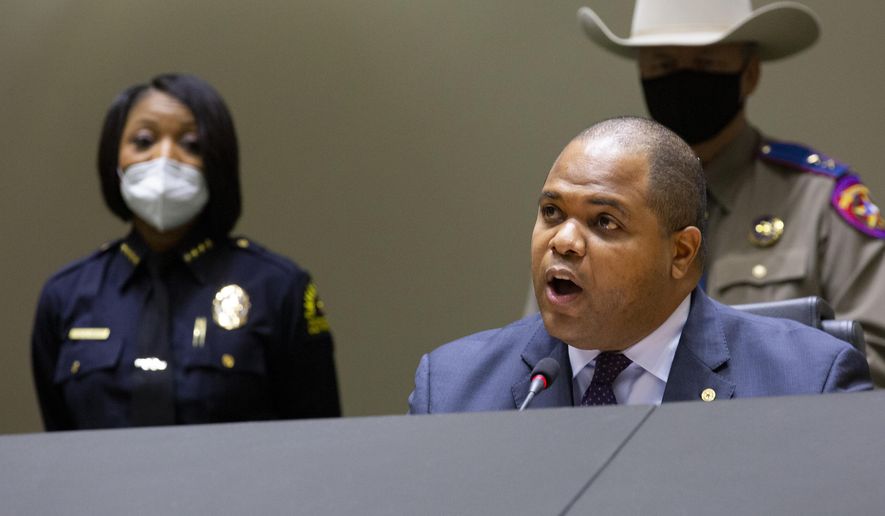OPINION:
The date is Aug. 28, 1963. It’s a beautiful, sunny day in Washington, D.C. In a moment destined for the history books, Dr. Martin Luther King Jr. takes to the steps of the Lincoln Memorial to deliver his iconic “I Have a Dream” speech. With conviction and poise, he approaches the podium and looks out across the National Mall. Rather than a flock of 250,000 enthusiastic faces, however, the reverend is left giving his speech over an empty Reflecting Pool.
A depressing thought, isn’t it? Is it even possible to imagine how different the world would be had this been the reality that fateful day? Yet in many ways, life in America is drifting closer to this dismal picture with each passing day, as tyrants on all levels of government continue to use shutdowns to silence their political opponents.
Earlier this month, I experienced this firsthand. This is because an organization I work for had been planning to bring 1,400 students, 100 state legislators and 250 investors to a venue in downtown Dallas for a peaceful, educational event. Attendees from across America would have been able to gather, make lifelong relationships and deepen their understanding of the ideas that make this country great: individual liberty, free-market capitalism and the rule of law.
After selecting our venue, we worked with local officials and venue management at every turn to ensure the safety of our participants. We required that every person wear a mask. We implemented the city’s recommended social distancing guidelines. We even worked with the venue to provide boxed meals.
Rather than stop with innocuous requests like these, the city’s demands only became more absurd. After initially granting us permission to operate at 50% capacity, they reneged weeks later and asked we only operate at one-third capacity. Then, after telling us we were only allowed to have round tables of 10 people six feet apart, they shifted the goal posts again and demanded we keep our tables limited to five people. Finally, after we thought all the ridiculous edicts were over, the city required our attendees to sit with the same people they travelled with in four-chair clusters, six feet apart.
Despite our cooperation with the city’s demands, just three days before the launch of a long-anticipated event they notified us of their intention to invoke a force majeure order and forcibly shut down our event.
For over 40 consecutive days, the city of Dallas had been shaken by mass protests and out-of-control, left-wing riots (some of which numbered as many as 5,000 or more). Large protests were allowed to happen in their city simply because city leadership happened to agree with the cause being protested. Meanwhile, socially-distanced, pro-liberty students were told to go home. Political favoritism had won the day, and in doing so, cost our organization approximately $200,000 in non-refundable expenditures.
When we imagine tyranny, we often think of some cruel, contemptuous autocrat in a building of some kind far, far away. Sometimes this idea might manifest itself in the image of a greedy monarch perched on an opulent throne in a lofty castle.
For others, perhaps the image that comes to mind is some Kremlin bureaucrat, grinning in his carpeted office as he prepares to erase the next political pariah from the following day’s Pravda. Regardless, despite our misconceptions and stereotypes, tyranny does not always cling to the center of power; many times, it lurks in our local offices, in our very neighborhoods — perhaps even in an otherwise unremarkable building we might pass by every day without giving it a second thought.
Recent generations have seen the city of Dallas — a cultural hub in the heart of a state long known for its legacy of defending liberty — devolve into a stark illustration of this. Such has been the fate of many of America’s cities, especially as lockdowns, economic turmoil and civil unrest plague the country. Like abusive, overbearing parents, little tyrants like New York City Mayor Bill de Blasio and San Francisco Mayor London Breed browbeat America’s cities into an existence of servitude and dependency.
If we cannot defend the First Amendment in these challenging times, none of our liberties are safe. And without the freedom to assemble peacefully today, who knows where future generations might be led tomorrow.
• Brandon Borke serves as director of Strategic Partnerships at Young Americans for Liberty (YAL) and as an Emerging Leader with The Steamboat Institute.




Please read our comment policy before commenting.